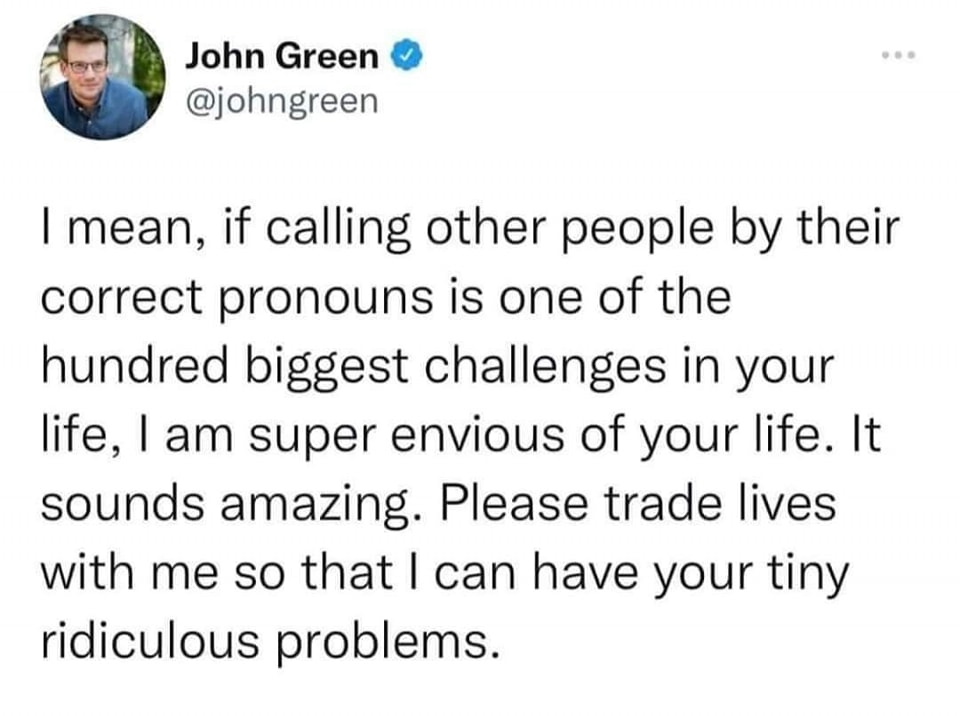this post was submitted on 28 Apr 2024
1536 points (92.2% liked)
Microblog Memes
4759 readers
2794 users here now
A place to share screenshots of Microblog posts, whether from Mastodon, tumblr, ~~Twitter~~ X, KBin, Threads or elsewhere.
Created as an evolution of White People Twitter and other tweet-capture subreddits.
Rules:
- Please put at least one word relevant to the post in the post title.
- Be nice.
- No advertising, brand promotion or guerilla marketing.
Related communities:
founded 1 year ago
MODERATORS
you are viewing a single comment's thread
view the rest of the comments
view the rest of the comments

My boomer parents will die on the hill that it sounds "wrong" to use "they" to refer to a singular entity. And whenever they bring that up, I always remind them that the word "they" has been used in that way for AGES.
Example: "Whose umbrella is this? Did they already leave?"
It doesn't seem to make a difference.
Since nobody has mentioned the actual reason for this phenomenon yet, the difference here is usually one of known vs. unknown gender/referent. (At least for practically all older speakers of English. Some younger speakers do seem to be able to use "they" grammatically to refer to known people. Changes in progress, woo!)
Your example is a perfect one: in a question like "whose umbrella is this?" we have no idea what gender the owner is, and so "they" is grammatical for the vast majority of English speakers.
Once the gender/referent is known, however, for many/most speakers of English (myself included), "they" becomes ungrammatical and the speaker must switch to "he" or "she":
So, for anyone wondering why many speakers, probably including themselves (if they're honest enough to admit it), seem to find known-gender singular "they" to be awkward/ungrammatical when supposedly "it's been grammatical for a thousand years", that's why!
"They" also refers to plurality. In the case of an individual having either both or neither and you aren't trying to be disrespectful with "it" then it's not confusing at all because it's accurate.
That's not relevant to our conversation here - we're not talking about how language should be used (which linguistics, as an empirical/rationalist science, has nothing to say about), we're talking about how it is used.